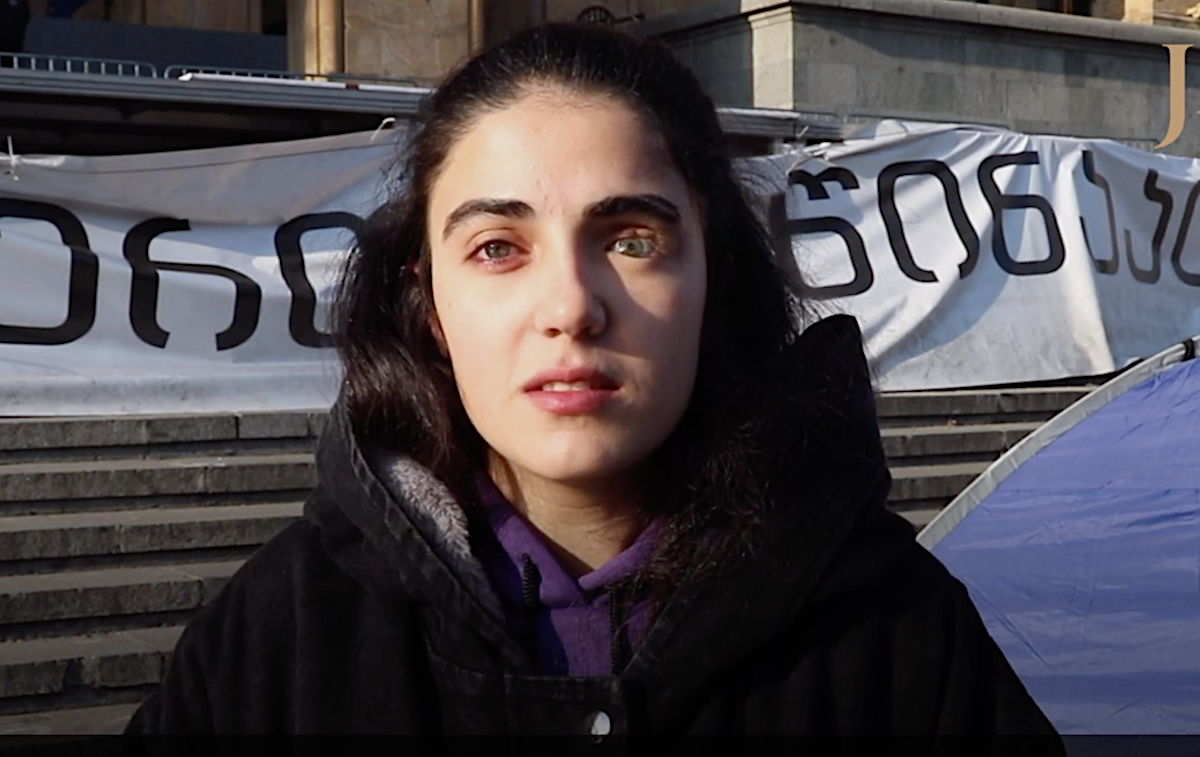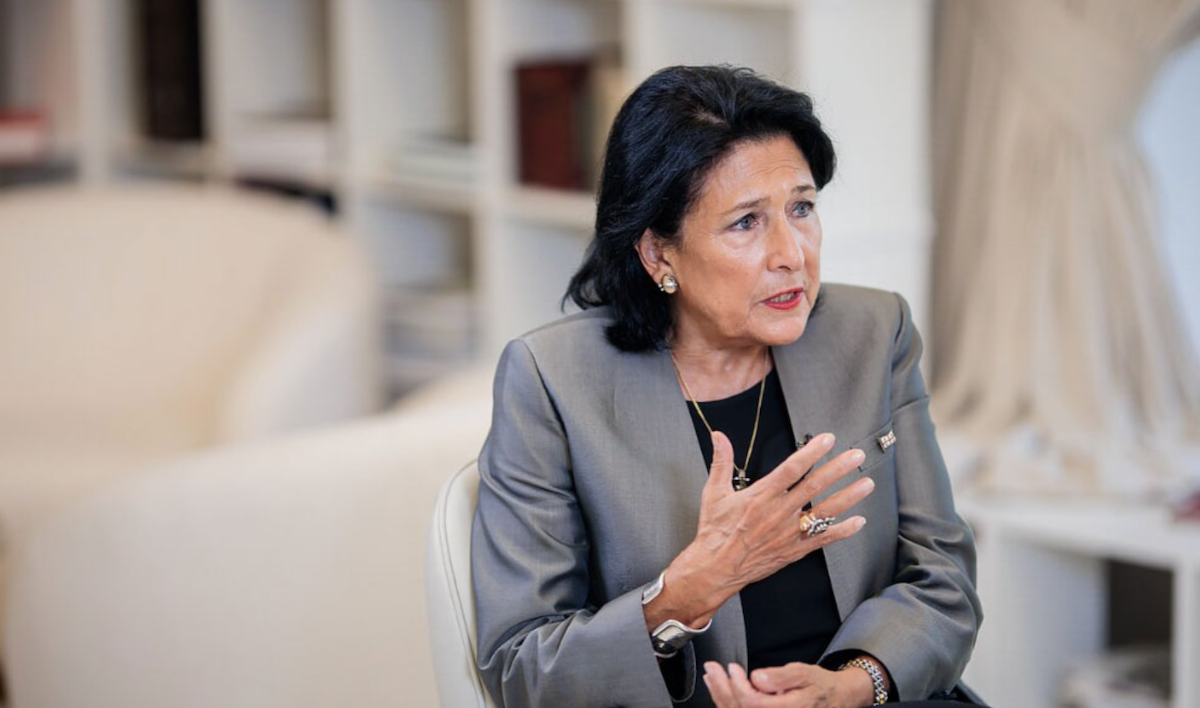Georgia: Six opposition leaders jailed – what’s next?
Six opposition leaders jailed in Georgia
Over the past month, the Georgian Dream government has jailed six opposition leaders. They are all accused of failing to appear before a parliamentary investigative commission set up to probe the actions of the Saakashvili regime between 2003 and 2012. The opposition considers both the commission and the parliament itself illegitimate.
- Opinion: Georgia faces its most repressive regime since 1930s
- US senators: “Georgian Dream is consolidating power through anti-democratic actions”
- Western reaction to arrests in Georgia: “We must act to prevent second Belarus in Caucasus”
Another opposition figure, Giorgi Gakharia — leader of the “Gakharia for Georgia” party — is also facing possible arrest. He is currently outside the country, and social media users have speculated that he fled to avoid detention.
What is happening within Georgia’s opposition, how long will the jailed leaders remain behind bars, and how are the arrests being perceived both domestically and in the West?
Six opposition leaders and a former defence minister are now behind bars. Three of the six — Nika Gvaramia, Zurab Japaridze, and Nika Melia — were imprisoned for refusing to pay bail imposed by the court for failing to appear before the parliamentary investigative commission. The other three — Giorgi Vashadze, Mamuka Khazaradze, and Badri Japaridze — did pay bail but were nonetheless arrested after final verdicts were issued in their cases.
On 5 February 2025, the Georgian Dream-controlled parliament established an investigative commission to examine the actions of the United National Movement government. The body was formally named the “Temporary Investigative Commission of the Parliament of Georgia to Examine the Activities of the Regime and Political Figures of the 2003–2012 Period.”
Georgian Dream had announced plans to set up the commission on 9 January 2025. According to Mamuka Mdinaradze, the head of the ruling party’s parliamentary faction, the commission will operate for six months and prepare a report to be discussed and approved during the first week of the September session..
- Giorgi Vashadze, leader of Strategy Aghmashenebeli, was arrested on 24 June and sentenced to seven months in prison. He was also banned from holding public office for two years;
- Mamuka Khazaradze and Badri Japaridze, leaders of Strong Georgia, were both imprisoned on 23 June for eight months and likewise banned from holding public office for two years;
- Nika Gvaramia, leader of the Coalition for Change, was arrested on 13 June. His case remains ongoing, with a verdict expected on 30 June;
- Nika Melia, another Coalition for Change leader, was arrested on 29 May — the same day his court-imposed bail was due to expire. He was detained before the deadline, and the following day the court replaced his bail conditions with pre-trial detention. A final verdict has not yet been issued;
- Zurab Japaridze, the third Coalition for Change leader, was the first to be arrested. He was detained on 22 May and sentenced to seven months in prison.
Case of Giorgi Gakharia
Giorgi Gakharia, leader of another opposition party Gakharia for Georgia, did appear before the parliamentary investigative commission. He attended the session on 14 April, where he was questioned for six hours by commission members about his actions and decisions during his time as Minister of Internal Affairs and later as Prime Minister.
On 16 June, it reports emerged of Giorgi Gakharia being summoned again by the parliamentary commission. The commission’s chairman stated that further questions remained regarding the Chorchana checkpoint.
In August 2019, while Gakharia was serving as Minister of Internal Affairs, a Georgian police checkpoint was established in the village of Chorchana, in the Shida Kartli region near the occupation line. Prior to the checkpoint’s opening, Russian occupying forces had begun the illegal process of “borderisation” — the demarcation of a de facto boundary in the Georgia–South Ossetia conflict zone. Gakharia told the commission that the checkpoint had saved 1,800 hectares of land that the Tskhinvali occupation regime was attempting to seize using a “fake map” from 1992.
Georgian Dream, however, claims that the government and security services were unaware of the checkpoint’s opening. According to them, it led to the loss of territory and brought the country to the brink of war.
“This was a carefully planned act aimed at military escalation,” said Georgian Dream’s executive secretary Mamuka Mdinaradze.
Gakharia is currently outside Georgia, with party members saying only that he is in an EU member state, offering no further details.
At this stage, it is known that Gakharia offered to join the commission’s session remotely, but his request was denied. He has been given a deadline of 2 July to return to Georgia and appear in person.
“Giorgi Gakharia has already appeared once before the commission and addressed the issue of Chorchana. He has since repeatedly expressed his willingness to attend further hearings remotely, which is allowed by the rules and was previously accepted by the commission. Yet, for the first time, the commission has refused to hear Gakharia — even though they continue to hear others remotely,” said Berdia Sichinava, a member of Gakharia’s party, Gakharia for Georgia, at a special briefing on 23 June.
Sichinava added that Gakharia had once again offered to join the 2 July hearing remotely. The commission justified its refusal by claiming they had questions for him “on a very serious matter.”
“This man is responsible for the loss of a million square metres of territory that had been under the control of the Georgian government and was seized by occupying forces. That is a very serious matter,” said commission member Tengiz Sharmanashvili.
In addition to possible punishment for failing to appear before the commission, Gakharia now faces criminal charges related to the Chorchana case.
On 14 June 2025, Georgia’s Prosecutor’s Office announced it had launched an investigation into acts of sabotage, attempted sabotage under aggravating circumstances, collaboration with a foreign organisation or one under foreign control engaged in hostile activity, and the mobilisation of funds for actions aimed at undermining Georgia’s constitutional order and national security. These charges fall under Articles 318 (Part 1), 19 (Part 2), 318(a), and Parts 2 of Articles 319 and 321 of Georgia’s Criminal Code.
How has the West reacted to the arrests?
The U.S. State Department expressed deep concern over the arrests of opposition politicians in Georgia and the broader persecution of individuals critical of the Georgian Dream government.
U.S. Senator Jeanne Shaheen, a member of the Senate Foreign Relations Committee, described the arrests as an example of systemic repression.
“Sentencing and detaining democratic opposition leaders in Georgia is not justice, it’s a pattern of repression,” she wrote on social media platform X.
EU Commissioner for Enlargement Marta Kos called on the Georgian Dream government to release all those unjustly detained.
“The arrest of opposition voices is an attack at Georgia’s democratic foundations, which are being eroded by the day. I stand with those fighting for a free and pluralistic Georgian society and call on the Georgian authorities to release all journalists, activists and those detained unjustly,” she wrote.
MEP Rasa Juknevičienė called on the European Council to impose sanctions:
“Does anyone in the EU still doubt that Georgian Dream has chosen the path of dictatorship? I urge the European Council to unanimously adopt sanctions against the regime,”
Estonian Foreign Minister Margus Tsahkna warned that the arrests of opposition leaders were pushing Georgia further away from Europe:
“Jailing pro-European politicians only pushes Georgia further from its EU path. The political persecution must end. Georgian Dream must release all political prisoners now,” he said.
Germany’s ambassador to Georgia, Peter Fischer, expressed regret over the arrests.
“Quo vadis, Georgia?” he wrote.
Что думают об арестах в Грузии?
According to Sandro Baramidze, Programme Manager for Human Rights and the Rule of Law at Transparency International Georgia, the Georgian Dream regime is acting against Georgia’s interests and doing everything possible to isolate the country from the democratic world.
Transparency International views the arrests of opposition leaders as yet another step towards dictatorship.
“Ivanishvili has chosen to retain power through dictatorship, and basic human rights are being violated every day. This is not the problem of one group — it is a threat to every citizen. Tomorrow, anyone could become a victim of repression. Citizens of Georgia, we will not give in! Georgia will not become Russia! A strong and united response to the repression is essential,” the organisation said in a joint statement.
Sociologist Iago Kachkachishvili is convinced that “virtually the entire opposition political class and representatives of other institutions will end up in prison — if not today, then tomorrow.”
Constitutional expert Vakhtang Menabde urged the opposition to think strategically:
“The only calculation we need is this: what will cause the regime the greatest long-term harm?”




















